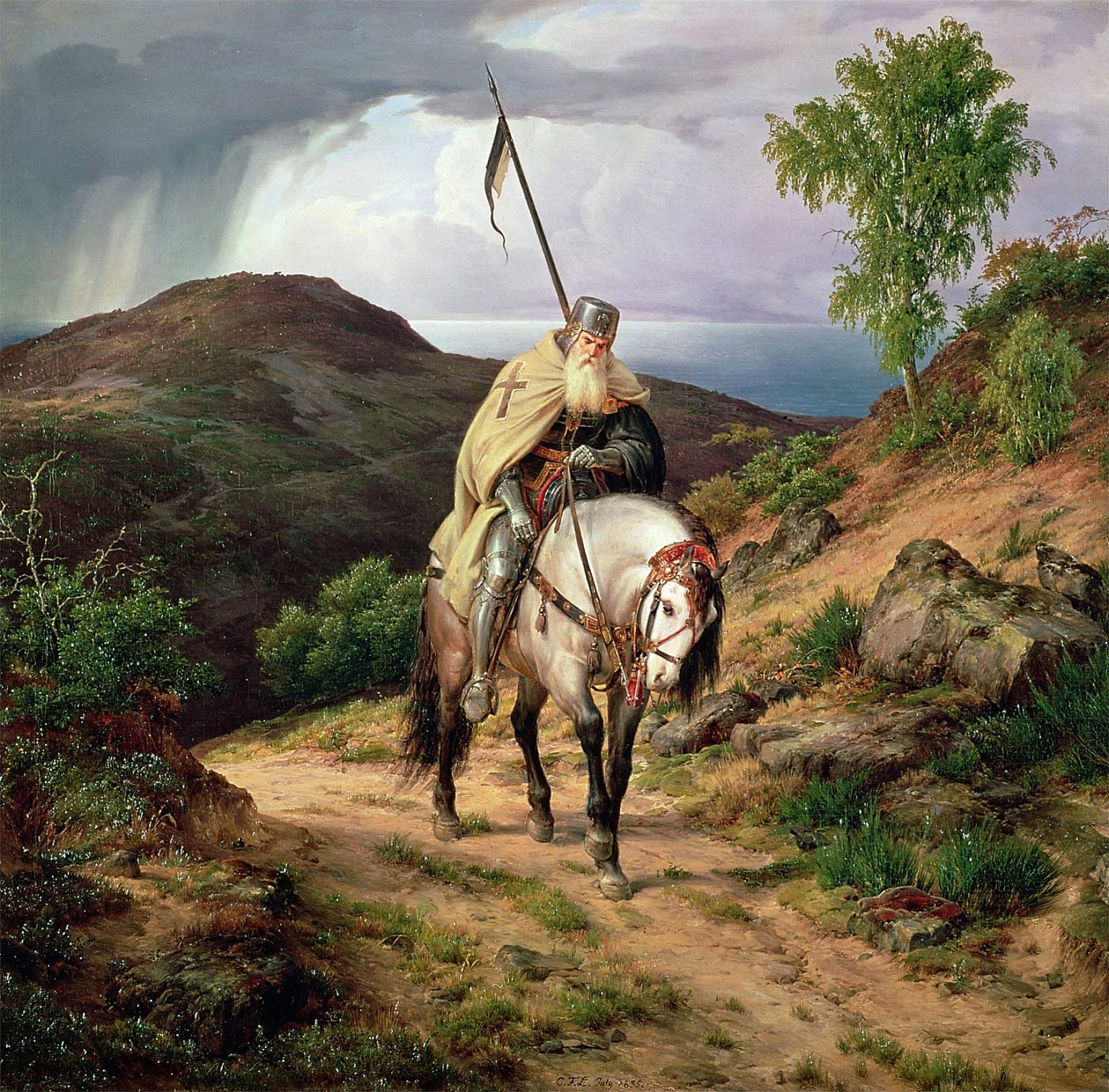Is Life Too Short?
The Stoic guide to living life to the fullest...
“It is not that we have a short time to live, but that we waste much of it”
Seneca, De Brevitate Vitae, 1.3
It is by now a cliché to say that ‘time is the most precious resource we have’. A cliché not because it is untrue, but that consideration of its actual implications generally goes no deeper than merely quoting the phrase.
Time has flowed at the same speed since Creation, but we have perhaps never before perceived it as flowing more swiftly than we do now. How much more frequently, after all, have you found yourself saying to others — or indeed yourself — ‘I don’t have time’?
But while post-industrial society has done much to needlessly complicate and congest life, the question of how to use our time has been asked since Antiquity. Indeed one of the greatest minds of the ancient world, Seneca the Younger, the Stoic philosopher and tutor to the Emperor Nero, wrote an essay on this very subject.
Titled De Brevitate Vitae, or ‘On the Shortness of Life’, the essay takes the form of a letter of advice written by Seneca to a certain Paulinus, a man who as a praefectus annonae was in charge of Rome’s grain supply, essentially urging him to rethink his life.
So if you too feel that time is running away from you, here is what Seneca can teach you about how to stop merely existing, and start living a truly fulfilling life…
You Have All the Time You Need
“Most of mankind, Paulinus, complains about nature’s meanness, because our allotted span of life is so short, and because this stretch of time that is given to us runs its course so quickly, so rapidly — so much so that, with very few exceptions, life leaves the rest of us in the lurch just when we’re getting ready to live”
Seneca, De Brevitate Vitae 1.1
As Seneca immediately reminds Paulinus — and us — it is human nature for each of us to believe that we have been dealt the worst hand in life. Whether in our material or immaterial fortunes, there is always something standing in the way of us achieving ‘happiness’.
Most cruelly of all, it is also in the nature of Man to never realise what really matters until it is too late to make use of this knowledge. Only in the face of Death does a man make the truest account of his life, what it ‘achieved’, how misplaced so many of our dreams were, and who was really ‘there’ for us. Just when we have finally found a measure of peace, the rug is pulled from under us, and mortality leaps out to confront us.
But, as Seneca points out,
“It is not that we have a short time to live, but that we waste much of it. Life is long enough, and it’s been given to us in generous measure for accomplishing the greatest things, if the whole of it is well invested. But when life is squandered through soft and careless living, and when it’s spent on no worthwhile pursuit, death finally presses and we realize that the life which we didn’t notice passing has passed away”
Seneca, De Brevitate Vitae 1.3
Life only ‘feels’ short because the time we spend actually living only occupies a fraction of the span between our birth and death. A man who confronts Death with the sorrow of regret is a man who has misused the time given to him. It is a phenomenon rather ingeniously compared by Seneca with the wealth of a family. Under able stewards, conscious of its extent and value, it only grows over the course of generations. Yet in the hands of one who is wasteful, it can vanish in an instant.
The ‘problem’, therefore, was not the wealth, but the manager. So too is it with Time.
“Many who have no consistent goal in life are thrown from one new design to another by a fickleness that is shifting, never settled and ever dissatisfied with itself. Some have no goal at all toward which to steer their course, but death takes them by surprise as they gape and yawn”
Seneca, De Brevitate Vitae 2.2
To paraphrase another of Seneca’s most famous sayings, no wind is favourable to a captain who does not know where he is sailing. Too many men spend too much of their lives in search of their purpose, or even what it is that brings them genuine enjoyment. All of the rest is spent in enslavement to the expectations of others, or else procrastinating from these central quests, whether it be a man who delayed starting a family, or that business he had always dreamed of.
How many of us indeed gave years of life to jobs of what Seneca called “voluntary enslavement of thankless attendance” (De Brevitate Vitae 2.1)? How many, too, squandered years of youth in the pursuit of fleeting vices which promised pleasure yet left emptiness, “keeping them lowered and fixed on mere desire” (De Brevitate Vitae 2.3)?
One might think that the solution to this is to focus our attention on pursuing ‘success’. Yet this most common belief, as Seneca goes on to reveal, is among the deadliest traps of all…
The Prison of Obligations
“You think I speak only of those whose faults are admitted? Look at those whose prosperity draws crowds — they are choked by their own goods. How many have found their wealth a burden! How many are drained of their blood by their eloquence and their daily preoccupation with showing off their abilities! How many are sickly pale from their incessant pleasures! How many are left with no freedom from the multitude of their besieging clients!”
Seneca, De Brevitate Vitae 2.3
Beware the hunt for success, for if, once achieved, said ‘success’ only expands and intensifies your burdens, it is no success at all. How many, after all, have followed a calling, only to find that the advancement and promotion they were convinced to later pursue have only pulled them away from that calling, and in its place left only tiresome responsibilities?
What good is a lavish holiday if it is disturbed by the office, either directly by interruption, or indirectly by the anxiety of dreading what awaits your return? How many times have we purchased a product or service, hoodwinked into thinking it will make life easier, only to find we have merely invited another thief of time into our home?
On this, Seneca relates the example of the Emperor Augustus, whose brilliance and indeed success came at the heftiest of prices, for he was cursed forever by the false dream that “one day he would live for himself” (De Brevitate Vitae 4.2). The first emperor, Seneca maintained, was a great man who was at his happiest only when thinking of the day when he could lay aside his greatness, so dependant upon him personally had the fortunes of Rome become. Cicero, too, had obtained wealth and fame, and yet enjoyed a half life, his country estate in Tusculum allowing no respite from the siege of requests made of him.
It is this which focuses one of Seneca’s most powerful warnings. That if the burden of your choices overtakes the fulfilment they bring, you will begin to despise every thing you do. If the price of your success is the ceding of control of your time to others, then it does not matter what else you do or have — no matter how long you live, death will come too soon:
“In reality, your life, even if you live a thousand years and more, will be compressed into the merest span of time; those vices of yours will swallow up any number of lifetimes”
Seneca, De Brevitate Vitae, 6.4
True success, therefore, is better measured not in the extent of one’s coffers, nor one’s position in a hierarchy, but by how much of one’s time is what Seneca called ‘preoccupied’ — dominated by the anxieties spawned by the rest of it.
Among the very worst examples of our inability to properly allocate value to the many resources of this world, as Seneca wisely observed, was in the asking of favours or soliciting of services. All too often, he argues, both parties focus on the object of the request, and treat the time involved to fulfil it as a trifling detail instead of the primary demand — the asker out of subconscious selfishness, the recipient out of social anxiety.
You might believe that Seneca’s solution to breaking out of the prison of obligations is that you simply need more leisure time. But actually, ‘leisure’, like ‘success’, can be a lethal deception — especially if you fail to realize what ‘leisure’ really means….
The Leisure Deception
“Leisure seemed such a desirable thing that, because he couldn’t enjoy it in reality, he enjoyed the thought of it in advance.”
Seneca, De Brevitate Vitae, 4.4






